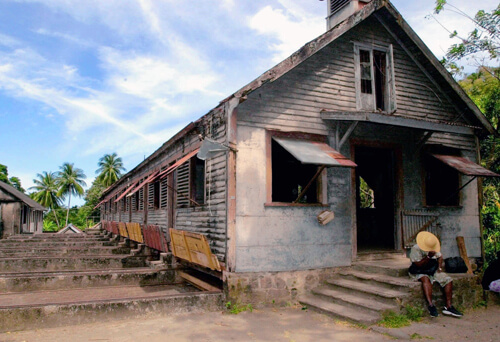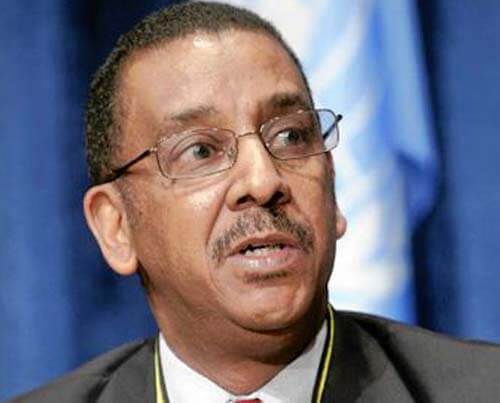Prime Minister Tillman Thomas on Wednesday, Sept. 14 turned the sod signalling the beginning of the Wind Energy project on the sister Isle of Carriacou.
The project is funded by a European Union (EU) grant of EUR 2.5M to the Government of Grenada which covers three quarters of the cost with the balance being financed by the Grenada Electricity Services Limited (GRENLEC) to the tune of EUR 1.4M.
The prime minister, who has emerged as a world leader on issues of climate change and sustainable development, welcomed the occasion, calling it a tangible step in the realization of one of the five macroeconomic transformational pillars, that of renewable energy.
“It is clear that we’re not only talking about these things, this is evidence of what we want to do, we are really strengthening the pillars, because we recognize the importance of energy,” Thomas said.
He noted that Grenada has always taken its position as a leader in sustainable development seriously, a boast evidenced by the breaking of the ground of the first ever project of its kind in the OECS and wider region.
Alluding to the recent signing of an agreement with the Republic of Trinidad and Tobago, one of the world’s oldest oil producers, “to explore and exploit” Grenada’s maritime resources, the nation’s leader believes that these are “necessary steps” to reducing Grenada’s carbon footprint and the realization of the Green economy by 2030, a position articulated by the NDC administration.
Acknowledging that the initial cost of renewable energy is high, Prime Minister Thomas is confident that this notwithstanding, the dividends redounding to the Grenadian people will be unmatched.
“I believe in the long run, with renewable energy, be it geo-thermal, wind energy or solar, it would bring some benefit and be less burdensome to our people,” adding that projects of this nature will enhance the quality of life for Grenadians.
The prime minister expressed his gratitude to the stakeholders, the Ministry of Energy, EU and GRENLEC to see the project to this stage, noting that “such partnerships work to implement projects that are sustainable, projects that will bring security to our people.”
He said too that the provision of jobs for residents of Carriacou and Petite Martinique in the construction phase of the project is indeed a welcome bonus.
The project is expected to be completed by 2014 with the anticipated benefit of lower electricity costs to the consumer in the long run.























